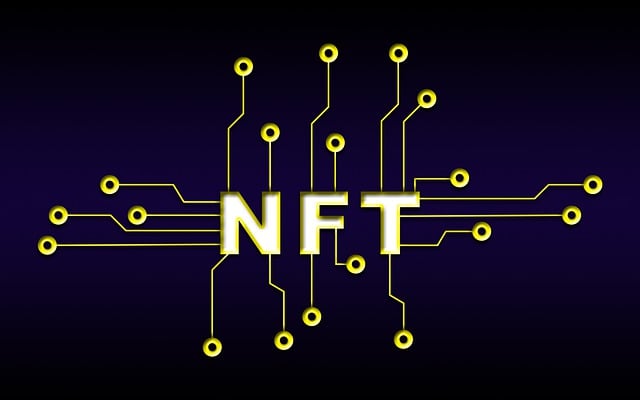The rise of cryptocurrencies has led to significant changes in South Africa, where the South African Revenue Service (SARS) is actively clarifying tax obligations for digital assets through the taxation of crypto assets. These include gains from buying, selling, or mining crypto, with guidelines on identifying holdings, determining fair market value, and applying relevant tax rates. The SARS's proactive measures aim to integrate cryptocurrencies into the country's tax framework, formalize the market, and generate substantial tax income. However, challenges remain due to the decentralized nature of crypto transactions and rapid technological advancements, requiring advanced compliance mechanisms and potential future reforms for enhanced revenue generation.
“Unraveling the intricate landscape of Crypto Assets Taxation in South Africa, this comprehensive guide offers a detailed exploration of its impact on the nation’s tax revenue. With the rapid rise of cryptocurrencies, South Africa has navigated the legal framework to govern crypto taxation, collecting taxes from an often-elusive digital asset class. This article delves into the current state, challenges, and future prospects, providing essential insights for both taxpayers and authorities. Understanding this evolving space is crucial for maximizing tax revenue and fostering a robust digital economy.”
- Understanding Crypto Assets Taxation in South Africa: A Comprehensive Overview
- The Legal Framework Governing Crypto Taxation in the Country
- How Crypto Tax Collection Impacts South Africa's Tax Revenue
- Challenges and Considerations for Accurately Taxing Cryptocurrencies
- Compliance and Enforcement Mechanisms for Crypto Tax Obligations
- Future Prospects: Potential Reforms to Enhance Crypto Taxation in South Africa
Understanding Crypto Assets Taxation in South Africa: A Comprehensive Overview

In recent years, the rise of cryptocurrency has sparked significant interest globally, and South Africa is no exception. Crypto assets taxation in South Africa refers to the process of taxing gains made from buying, selling, or mining cryptocurrencies. The South African Revenue Service (SARS) has been actively engaged in clarifying tax obligations related to digital assets, releasing guidelines to ensure compliance among citizens and businesses operating within the country.
The complexity arises due to the decentralized nature of cryptocurrency, making it challenging to track transactions and calculate taxes accurately. However, the SARS has implemented measures to streamline this process. They have outlined rules for identifying crypto asset holdings, determining their fair market value, and applying the appropriate tax rates based on capital gains or income generated from mining activities. These guidelines are essential steps towards integrating cryptocurrency into South Africa’s existing tax framework, fostering a clear understanding of crypto assets taxation in the country.
The Legal Framework Governing Crypto Taxation in the Country

In South Africa, the legal framework governing crypto taxation is defined by the Income Tax Act (ITA) and relevant regulations. The ITA classifies cryptocurrency as an asset, similar to stocks or property, rather than a currency. This classification has significant implications for how crypto transactions are taxed. Individuals who receive crypto assets as income, such as from mining operations or trading, must declare this income and pay tax on it according to their marginal tax rate.
The South African Revenue Service (SARS) has issued guidelines to ensure compliance with crypto asset taxation rules. These include the requirement to keep detailed records of all crypto transactions, including purchase prices, sales proceeds, and any associated costs. The SARS also recognizes that the volatile nature of cryptocurrency values can impact taxable income, so they provide specific instructions for determining the fair market value at the time of disposal.
How Crypto Tax Collection Impacts South Africa's Tax Revenue

The implementation of crypto assets taxation in South Africa has significantly influenced the country’s tax revenue landscape. As the cryptocurrency market gains traction, taxing digital assets has become a critical area of focus for fiscal authorities. The South African Revenue Service (SARS) has taken proactive steps to develop a comprehensive framework for crypto tax collection, ensuring compliance and generating additional revenue streams. This shift towards digital taxation is particularly important given the challenges posed by the decentralized nature of cryptocurrencies, which can make tracking and taxing traditional financial activities more difficult.
The impact on South Africa’s tax revenue is twofold. Firstly, it provides an opportunity to formalize the crypto market, encouraging investment and participation while generating substantial tax income. Secondly, effective crypto assets taxation allows SARS to adapt to the evolving economic landscape, ensuring that digital transactions contribute their fair share to public finances. This approach not only helps in balancing the budget but also sends a signal to international investors about South Africa’s commitment to embracing new financial technologies while maintaining robust tax practices.
Challenges and Considerations for Accurately Taxing Cryptocurrencies

The taxation of crypto assets in South Africa presents several unique challenges, particularly as the regulatory environment evolves alongside rapid technological advancements. One significant hurdle is the inherent decentralized nature of cryptocurrencies, which can make tracking and attributing transactions difficult for tax authorities. As a result, accurately determining taxable income from crypto asset holdings becomes complex, especially with the diverse range of digital currencies available.
Additionally, the global and often borderless nature of cryptocurrency markets introduces cross-border taxation issues. South African taxpayers may engage in activities involving crypto assets based outside the country, complicating tax compliance. Addressing these challenges requires a thoughtful approach that balances the need for revenue collection with the technical complexities inherent in regulating this emerging asset class.
Compliance and Enforcement Mechanisms for Crypto Tax Obligations

South Africa’s crypto assets taxation system introduces several compliance and enforcement mechanisms to ensure taxpayers meet their tax obligations. The South African Revenue Service (SARS) plays a pivotal role in this regard, tasked with monitoring and auditing cryptocurrency transactions to verify reported income and calculate the applicable tax. Taxpayers are expected to keep accurate records of all crypto-related activities, including purchases, sales, and exchanges, as these details are crucial for compliance.
The SARS has implemented various tools and guidelines to facilitate compliance. These include clear taxation rules, forms, and educational resources that outline the tax treatment of cryptocurrencies. They also conduct regular campaigns and public awareness programs to keep taxpayers informed about their crypto tax obligations. Enforcement measures range from voluntary compliance initiatives to stricter audit processes and potential penalties for non-compliance.
Future Prospects: Potential Reforms to Enhance Crypto Taxation in South Africa

As South Africa continues to integrate cryptocurrency into its financial landscape, the country’s tax authorities face a challenging yet crucial task—to adapt and streamline crypto asset taxation for sustainable revenue growth. Future prospects in this domain suggest that several reforms could be explored to enhance the efficiency of crypto taxation. One potential area of improvement is the clarification of definitions and standards for different types of crypto assets, ensuring consistency and fairness in valuation.
Additionally, implementing a robust and decentralized tax reporting system tailored to cryptocurrency transactions can help simplify compliance for both individuals and businesses. This could involve leveraging blockchain technology to track and verify crypto trades, enabling more accurate and timely data for tax assessment. Such innovations have the potential to not only strengthen South Africa’s tax administration but also set a precedent for global best practices in crypto asset taxation.















